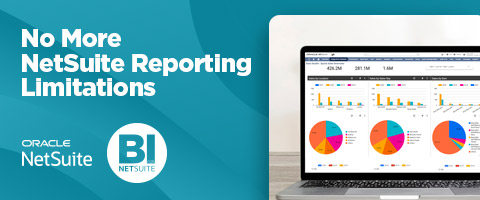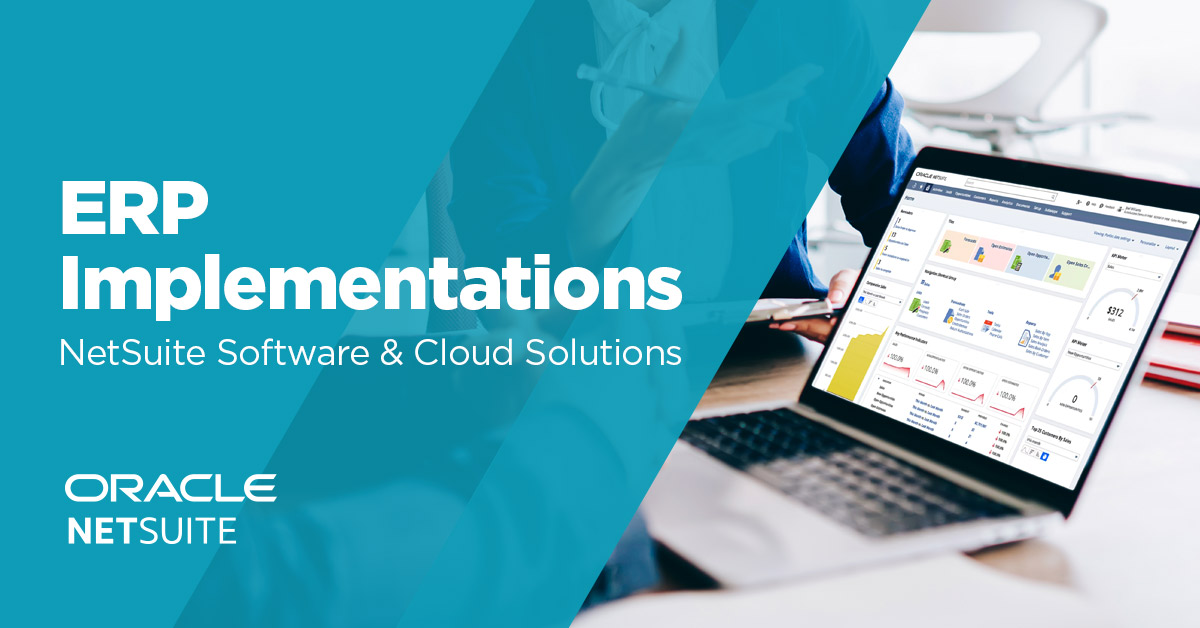Table of Contents
- What is AI and Why It Matters for NetSuite
- Why Data Migration Matters for NetSuite AI Integration
- How NetSuite BI Supports Data Migration for AI
- Steps for Effective Data Migration
- AI vs BI in NetSuite: Key Differences
- Integrating AI and BI in NetSuite
- How to Prepare NetSuite for AI in 7 Steps
- Frequently Asked Questions About AI for NetSuite
- Why Choose GURUS for NetSuite AI Integration
Artificial Intelligence (AI) is revolutionizing industries worldwide, and businesses using NetSuite are no exception. Preparing your organization to embrace AI involves several crucial steps, from understanding what AI is to effectively managing data migration, and more.
But what are the differences between Artificial Intelligence, and Business Intelligence? Continue reading to learn how these two systems and solutions compare, and how best to integrate both of them with your NetSuite ERP instance.
Get a Free Assessment
What is AI and Why It Matters for NetSuite?
AI, short for Artificial Intelligence, involves machines that are programmed to mimic human intelligence and learn in a similar way. AI applications include machine learning, natural language processing, robotics, and more.
These technologies enable machines to perform tasks that typically require human intelligence, such as decision-making, problem-solving, and language understanding.
AI can be divided into two categories:
Narrow AI:
AI systems designed to handle a specific task, such as virtual assistants or recommendation engines.
General AI:
AI with generalized human cognitive abilities, capable of performing any intellectual task that a human can.
Why Data Migration Matters for NetSuite AI Integration
Data migration is a foundational step in preparing for AI integration. Proper data migration ensures that your organization's data is accurate, consistent, and accessible, which is critical for effective AI deployment.
How NetSuite BI Supports Data Migration for AI
When considering data migration, Business Intelligence (BI) for NetSuite plays a significant role. BI tools help in analyzing data and generating insights, which are crucial for making informed decisions.
GURUS Solutions offers robust BI solutions for NetSuite, ensuring that your data is seamlessly migrated and optimally utilized for AI applications. Learn more about BI for NetSuite here.
Steps for Effective Data Migration
Assessment and Planning:
Identify the data to be migrated and plan the migration process meticulously.
Data Cleansing:
Ensure data is clean and free from duplicates and errors.
Data Mapping:
Map data from the source system to the target system, ensuring compatibility.
Migration Execution:
Perform the data migration using appropriate tools and techniques.
Validation and Testing:
Validate the migrated data to ensure accuracy and completeness.
AI vs BI in NetSuite: Key Differences
BI, short for Business Intelligence, involves the use of technologies and methods to gather, merge, assess, and display business data. The goal of BI is to support better business decision-making. BI systems include data warehousing, data mining, and reporting tools.
While both AI and BI are used to analyze data and generate insights, they differ in their approach and capabilities.
AI Capabilities:
AI goes beyond BI by enabling predictive and prescriptive analytics. It can learn from data, identify patterns, and make decisions with minimal human intervention.
BI Capabilities:
BI focuses on descriptive analytics, providing a historical view of data to help users understand past trends and performance.
Integration of AI and BI in NetSuite
Integrating AI with BI in NetSuite can provide comprehensive analytics solutions. For example, while BI tools analyze historical data to generate reports, AI can predict future trends and prescribe actions based on those predictions. This integration can lead to more informed and proactive decision-making.
How to Prepare NetSuite for AI in 7 Steps
Assess Readiness
Evaluate your current infrastructure, data quality, and organizational readiness for AI integration. Identify gaps and areas needing improvement.
Develop a Strategy
Create a comprehensive AI strategy aligned with your business goals. This strategy should outline the objectives, timelines, and resources required for AI implementation.
Invest in Training
Ensure your team is well-equipped with the necessary skills and knowledge to work with AI technologies. Invest in training programs and workshops to build AI competency.
Choose the Right Tools
Select AI tools and platforms compatible with NetSuite. Consider factors such as scalability, ease of integration, and support services.
Implement Data Governance
Establish data governance practices to ensure data quality, privacy, and security. This includes setting up data standards, policies, and procedures.
Pilot and Scale
Start with a pilot project to test the feasibility of AI integration. Use the insights gained from the pilot to scale AI implementation across the organization.
Monitor and Optimize
Continuously monitor AI performance and optimize the system based on feedback and changing business needs. Regularly update AI models to ensure accuracy and relevance.
Frequently Asked Questions About AI for NetSuite
- Q: What is the difference between AI and BI in NetSuite?
A: Business Intelligence (BI) focuses on past data trends, while Artificial Intelligence (AI) uses that data to predict and automate future actions within NetSuite. - Q: Can I integrate AI tools directly into my NetSuite system?
A: Yes, with the right strategy and tools from GURUS Solutions, you can integrate AI technologies into your existing NetSuite ERP instance. - Q: Why is data migration important before AI integration in NetSuite?
A: Clean, organized data ensures your AI models can produce accurate insights. Data migration helps structure your data for optimal AI performance.
Why Choose GURUS for NetSuite AI Integration
GURUS Solutions offers a range of AI and BI solutions tailored for NetSuite users. Their expertise can help streamline the integration process, ensuring that your organization leverages AI's full potential.
GURUS Solutions' AI for NetSuite services provide comprehensive tools and support to help businesses implement AI effectively, enhancing their decision-making processes and operational efficiency.
Preparing for AI integration in NetSuite involves a strategic approach, from understanding AI and the importance of data migration to comparing AI with BI and implementing the necessary steps.
By following these guidelines and leveraging the expertise of solution providers like GURUS Solutions, NetSuite users can effectively harness the power of AI to drive innovation and achieve business success.
Ready to take the next step?
Explore how GURUS Solutions can support your AI journey and transform your business operations. Speak with one of our product representatives for more information.

